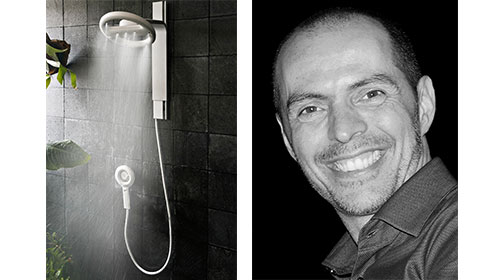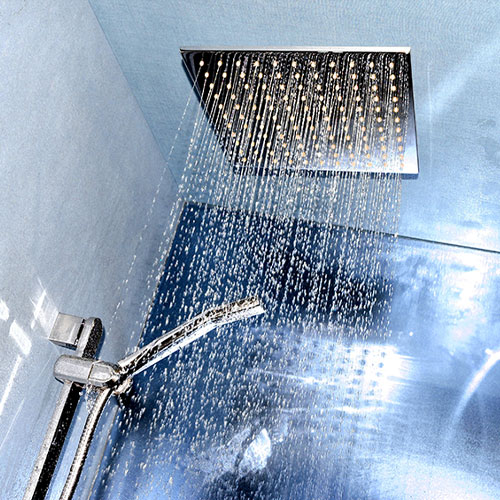Sustainable technology to reduce your energy consumption
The environment and our impact on it are of increasing concern, says André Fonseca, CEO of Zypho. But what can we do to make a tangible difference?
Saving a few kilowatts of energy a year may feel like a drop in the ocean, but enough droplets will create a wave of change that does have a demonstrable effect.
Here are some changes you can make today to reduce the environmental impact of your home...
Reducing non-renewable energy use
It’s only been in the last ten years or so that renewables, such as solar, wave and wind, have become an affordable and efficient means of generating power. Yet, that hasn’t stopped people taking energy-saving and renewables into their own hands.
With LED bulbs and solar panels, individuals have been able to reduce their power consumption and supplemented what they draw from the National Grid with their own renewable energy. As these technological innovations continue to develop, we’ll see more opportunities to reduce power and more ways to efficiently generate our own.
Which brings me onto our first change... 
Solar glass
Solar panels aren’t straightforward to install. They need to be on roofs or somewhere with a clear view of the sky, point south to capture the sun’s rays throughout the day, and they can’t block entrances or windows.
Solar glass promises to change all that. These transparent solar panels can replace windows, capturing the sun’s energy as light passes through.
While solar glass has not yet hit even 15% efficiency, the sheer number of windows across the country means we could generate all our energy needs as a nation through solar glass alone!
Smart switches
Reducing energy is just as important as finding renewable sources. Growing energy consumption would, otherwise, eat away at any gains from renewables, perpetuating our renewable energy deficit.
Lighting is one area where we could all do better. It’s all too easy to leave a light switched on while you’re at work or even away on holiday.
Fortunately, there are a range of devices that could help solve this issue, collectively known as ‘smart switches’. Using automation tools, such as a programmable timer or motion sensor, smart switches turn lights off when not in use. Coupled with LED bulbs, smart switches could dramatically cut the energy used on lighting, trimming your energy bill in the process.
Reducing heat loss
We all like to stay warm, especially in winter, whether that means notching up the thermostat by an extra degree or taking a long hot shower. Unfortunately, heat is easily lost from homes, via windows, drafts and even down the drain.
Insulation really does help, but it can only go so far. To ensure your home is truly environmental, you need to try and recapture heat lost...
Recapturing shower heat
Electric showers are amazing. No waiting for hours for the water to heat up, no running out of hot water when you’re running late to work, no suddenly cold shower on a winter morning. Just instant, hot showers.
Unfortunately, to pull off this modern miracle, electric showers use a lot of energy to heat the water. And all that heat energy is then lost down the drain within a few seconds.
Fortunately, there are new devices, such as Zypho, that can recapture some of that heat energy, dramatically reducing the energy taking to heat your shower water. These tube devices fit into existing shower units and baths, facilitating a heat exchange between the warm wastewater and the cold freshwater.
By pre-warming the incoming water, Zypho’s devices can save up to 67% of the energy used by a shower. That means, two in every three showers are free!
 Reducing water use
Reducing water use
Water is another commodity that manages to escape our households. Even with new ultra-low-flow (ULF) toilets, the average person flushes away around 9.1 gallons (or 34.4 litres) every day.
Yet, the biggest consumers of water in the home are showers. In the UK, we collective use 2.25 billion litres of water for showers every day. More than we use on toilets, laundry or for cups of tea!
With the amount of fresh drinking water available rapidly diminishing, we need to consider ways to use less and conserve more of our water supply.
Water-efficient showers
The main way of tackling the problem is to design showers that use less water. One example is Niagara. Their low-flow showerhead limits the amount of water being pumped out while ensuring consistent pressure, helping to give a satisfying shower while using far less water.
Another, more technological, example is Nebia. The company has also designed new showerheads that use 65% less water than traditional showers. The difference is, Nebia atomises the water as it comes out the showerhead, making the water go further. This should mean you get just as wet with less than half the amount of water!
Water-efficient laundry
One of the other single biggest consumers of water in the house is the washing machine. While they have improved in efficiency over the years, they still use 15 to 30 gallons of water per wash. The average household puts on two loads per week, which works out to be hundreds of litres of water, plus the energy spinning the drum and to heat the water that goes down the drain.
While solutions are a bit thin on the ground at the moment, there are some solutions out there that can help. The Laundry Pod, for example, is a low-tech way to solve the problem. The manual washing device uses only human power and just three gallons of water per wash. Don’t worry, it won’t see you getting out your grandparents’ washboard and ringer ‒ the spun device is much less hard work and much more efficient at cleaning clothes.
I know it’s hard to see the positives when it seems like we’re sleepwalking into an environmental catastrophe but, remember, there are things you can do. If we all make a few changes to conserve energy, generate our own power, and cut down on heating and water, we will see a huge difference.
ABOUT THE AUTHOR:
André Fonseca is the CEO of Zypho, a company developing internationally-patented shower-drain heat recovery solutions for domestic and commercial showers. André has a long history of success in management and marketing roles, primarily in the retail and construction materials industries. He has spent the past 20 years working in commercial and marketing management roles, most recently for Cifial SA and before that within the leisure and apparel industries. In his spare time, André enjoys outdoor pursuits including travelling, running and cycling.
